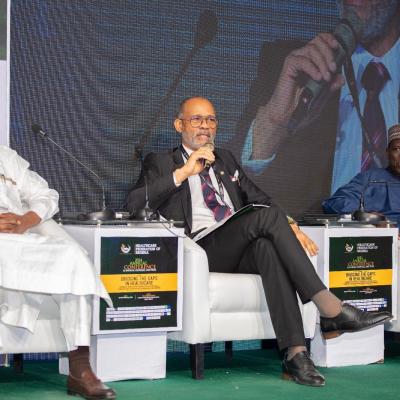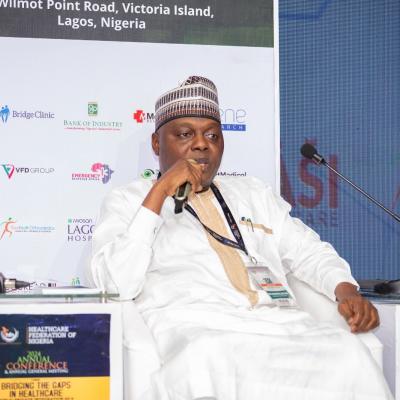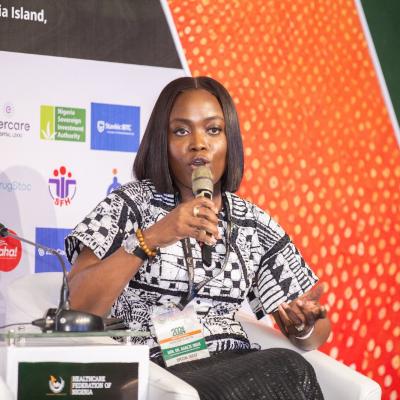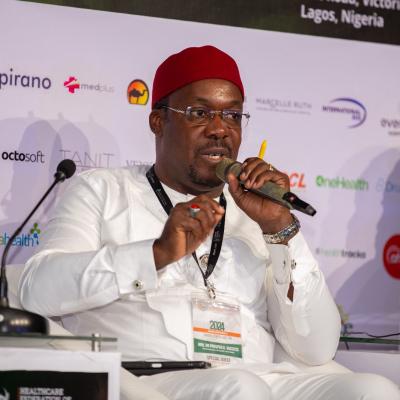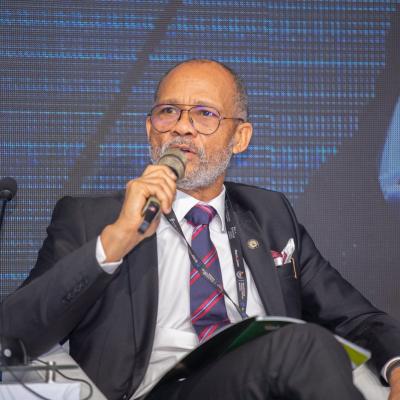UNFPA Provides Reproductive Health Services In 176 Facilities
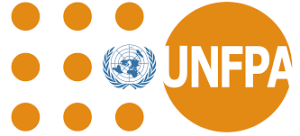 The UN Population Fund (UNFPA) had assisted in the provision of reproductive health services in 176 health facilities in the North-Eastern part of the country. The Fund’s Country Representative in Nigeria, Mrs Ratidzai Ndhlovu, made the disclosure at a meeting to review the health sector humanitarian response in the North-East on Thursday in Abuja. Ndhlovu said the meeting was aimed at addressing the health needs of the people. The News Agency of Nigeria (NAN) reports that the meeting, co-organised by the Federal Ministry of Health, the UNFPA and the Japanese Government is to ascertain the current health needs, as well as priorities for the North-Eastern states in 2016.
The UN Population Fund (UNFPA) had assisted in the provision of reproductive health services in 176 health facilities in the North-Eastern part of the country. The Fund’s Country Representative in Nigeria, Mrs Ratidzai Ndhlovu, made the disclosure at a meeting to review the health sector humanitarian response in the North-East on Thursday in Abuja. Ndhlovu said the meeting was aimed at addressing the health needs of the people. The News Agency of Nigeria (NAN) reports that the meeting, co-organised by the Federal Ministry of Health, the UNFPA and the Japanese Government is to ascertain the current health needs, as well as priorities for the North-Eastern states in 2016.
It was also to review the implementation of reproductive health services in conflict-affected communities in the North-East. She described sexual reproductive health problem as leading cause of women’s ill health and death worldwide, adding that the Fund’s interventions were aimed at decreasing maternal mortality and morbidity in conflict areas. The country representative said 50,000 women benefitted from UNFPA’s intervention as they were delivered of their babies at assisted health facilities.
Cambodian doctor (Yem Chroeum) to spend 25 years in prison
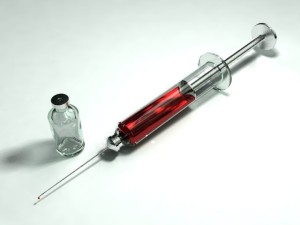 An unlicensed Cambodian doctor has been jailed for 25 years after being convicted of infecting more than 100 people with HIV, according to Cambodian media reports. Yem Chroeum was found guilty of infecting people in northwestern Battambang province with HIV by reusing dirty needles. The Phnom Penh Post reported Thursday. The case has highlighted a problem in many parts of rural Cambodia, where illegal doctors are often the only option for medical care.
An unlicensed Cambodian doctor has been jailed for 25 years after being convicted of infecting more than 100 people with HIV, according to Cambodian media reports. Yem Chroeum was found guilty of infecting people in northwestern Battambang province with HIV by reusing dirty needles. The Phnom Penh Post reported Thursday. The case has highlighted a problem in many parts of rural Cambodia, where illegal doctors are often the only option for medical care.
According to the Ministry of Health, almost 4,000 illegal health-service providers are still operating in the country. Panicked residents of Rokar village, where Chroeum was based, sought testing after reports of infections emerged in December 2014. Charges against the illegal doctor included intentionally transmitting the HIV virus and running a clinic without permission from the Ministry of Health.
Nigeria Nurses and Midwives may commence strike over unpaid uniform allowance
 The National Association of Nigeria Nurses and Midwives, NANSM, Federal Health institutions’ sector has alerted its members to be at alert and await further directives as the Association is set to embark on a nationwide strike action over unpaid allowances. The Association which is determined to ground services in the nation’s health sector accused some Chief Medical Directors and Medical Directors, whom they say deliberately refuse to pay uniform allowances to nurses and midwives “against the provision of the Civil Service Rule No. 130127.
The National Association of Nigeria Nurses and Midwives, NANSM, Federal Health institutions’ sector has alerted its members to be at alert and await further directives as the Association is set to embark on a nationwide strike action over unpaid allowances. The Association which is determined to ground services in the nation’s health sector accused some Chief Medical Directors and Medical Directors, whom they say deliberately refuse to pay uniform allowances to nurses and midwives “against the provision of the Civil Service Rule No. 130127.
In a communiqué issued at the end of its 30th Annual Scientific Conference, signed by its National Chairman, Mr. Nana Takai and National Secretary, Mr. Gambo Danfulani and made available to journalists in Jos, the duo also asked President Muhammadu Buhari to declare an emergency in the health sector, especially in areas of staffing, training, retraining and equipping health institutions with modern facilities.
Liberia Begins New Ebola-Free Countdown
 Liberia on Friday commenced a new countdown to declaring itself of Ebola free for a third time, health officials said. The countdown comes after the last two known Ebola cases were released from hospital on Thursday. In recent months, Liberia had been the only country in West Africa with known cases as neighboring Sierra Leone was declared Ebola-free in November while Guinea’s last known case recovered two weeks ago. “There are no cases in the ETUs (Ebola Treatment Units) in the entire Republic of Liberia,” said Tolbert Nyenswah, Head of Liberia’s Ebola response, adding that Ebola safety procedures remained in place.
Liberia on Friday commenced a new countdown to declaring itself of Ebola free for a third time, health officials said. The countdown comes after the last two known Ebola cases were released from hospital on Thursday. In recent months, Liberia had been the only country in West Africa with known cases as neighboring Sierra Leone was declared Ebola-free in November while Guinea’s last known case recovered two weeks ago. “There are no cases in the ETUs (Ebola Treatment Units) in the entire Republic of Liberia,” said Tolbert Nyenswah, Head of Liberia’s Ebola response, adding that Ebola safety procedures remained in place.
The two patients released from the Paynesville ETU are the father and younger brother of the presumed index case, a 15-year-old boy named Nathan Gbotoe from a suburb of the capital Monrovia who died from the disease late November. However, new cases could still emerge in Liberia since there are 165 contacts still under quarantine, of which more than 30 are deemed high risk, health officials told newsmen. Nyenswah say the contacts under surveillance have completed 14 of their obligatory 21-day monitoring – a period that corresponds with the typical incubation period of the virus.
NAFDAC Destroys N15M Fake Drugs In Kebbi
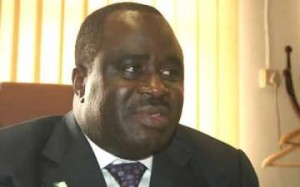 In a renewed offensive against menace of counterfeit drugs and other regulated products, the National Agency for Food and Drug administration and Control (NAFDAC) has destroyed fake drugs worth over N15million in Birnin Kebbi, Kebbi state. Director General of NAFDAC, Dr. Paul Orhii who was represented by the Federal Capital Territory coordinator of the Agency, Mr. Abdulsallami Ozigis while carrying out the destruction exercise in company of community leaders and security agencies, said the exercise had become necessary to prevent the offensive products from making re-entry into the market and to raise public awareness on the dangers of counterfeit regulated products.
In a renewed offensive against menace of counterfeit drugs and other regulated products, the National Agency for Food and Drug administration and Control (NAFDAC) has destroyed fake drugs worth over N15million in Birnin Kebbi, Kebbi state. Director General of NAFDAC, Dr. Paul Orhii who was represented by the Federal Capital Territory coordinator of the Agency, Mr. Abdulsallami Ozigis while carrying out the destruction exercise in company of community leaders and security agencies, said the exercise had become necessary to prevent the offensive products from making re-entry into the market and to raise public awareness on the dangers of counterfeit regulated products.
His words “the essence of destruction is to invariably prevent the seized products from finding their way back to the market. This will eliminate the dangers associated with the consumption of the spurious products to the consuming society”. Speaking further, Mr. Ozigis said eliminating the undesired regulated products from circulation will assist the medical practitioners and other stakeholders to render qualitative service to Nigerians and guarantee public safety.
Primary Healthcare: FG Brainstorms Towards Ending Medical Tourism
 In providing affordable and accessible Primary Health Care system in the country, the federal government is brainstorming and finding suitable ways in which every Nigerian will be exposed to basic health care facilities at almost no cost and further discourage medical tourism. This will include collaborating with states and local governments and ensuring that all tiers of government put in resources and build primary health care agencies. This was stated, Tuesday, by the minister of health, Prof Isaac Adewole at the first annual lecture of the National Primary Health Care Development Agency (NPHCDA) and with the topic “Primary Health Care. Realities, Challenges, and the Way Forward.”
In providing affordable and accessible Primary Health Care system in the country, the federal government is brainstorming and finding suitable ways in which every Nigerian will be exposed to basic health care facilities at almost no cost and further discourage medical tourism. This will include collaborating with states and local governments and ensuring that all tiers of government put in resources and build primary health care agencies. This was stated, Tuesday, by the minister of health, Prof Isaac Adewole at the first annual lecture of the National Primary Health Care Development Agency (NPHCDA) and with the topic “Primary Health Care. Realities, Challenges, and the Way Forward.”
He said so much concentration has been given to the tertiary health sector when it handles only 15% of healthcare delivery in the country and as such, all hands must be on deck as Nigeria needs a primary healthcare that will take care of everyone. “We will see that not every sick Nigerian will take the next available flight out of this country. We have some of the best brains that can look after you and use the facilities that are available to deliver good care to Nigerians. ”
MLSCN Harps On Quality Assurance For Medical Lab Practitioners
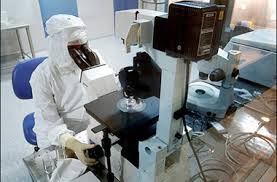 Medical laboratory practitioners in the country have been urged to as a matter of urgency embrace the concept of External Quality Assurance (EQA) in order to improve the quality of service they render to the patients. Speaking at a stakeholders forum involving members of the Guild of Medical Laboratory Directors in Abuja, the Registrar/CEO, Medical Laboratory Science Council of Nigeria, Prof Anthony O. Emeribe noted that it is only when a laboratory facility can subject its test results to external review that it can be taken seriously.
Medical laboratory practitioners in the country have been urged to as a matter of urgency embrace the concept of External Quality Assurance (EQA) in order to improve the quality of service they render to the patients. Speaking at a stakeholders forum involving members of the Guild of Medical Laboratory Directors in Abuja, the Registrar/CEO, Medical Laboratory Science Council of Nigeria, Prof Anthony O. Emeribe noted that it is only when a laboratory facility can subject its test results to external review that it can be taken seriously.
According to him, adopting the mechanism of EQA, which is at the heart of Quality Management System (QMS) had become imperative in order to up scale the quality of laboratory testing and to help safeguard the lives of patients, whose confidence in the health laboratory system he described as indispensable. Emeribe expressed regret that some medical laboratories are still not focussing on generating accurate, reliable and reproducible test results, adding that henceforth, any facility that relegates best practices to the back burner would incur the wrath of the Council.
FG Stops Commercial Sale Of Sickle Cell Drug “Niprisan”
 The Federal Government on Wednesday said it has stopped the commercialisation of Niprisan, a drug used to manage sickle-cell anaemia in the country. Prof. Karniyus Gamaniel, the Director-General, National Institute of Pharmaceutical Research Development (NIPRD), told the News Agency of Nigeria (NAN) in Abuja. He said that the drug was currently under the authority of the Federal Government, hence it was being produced and distributed solely by the Institute. He added that the move was part of the social corporate responsibility of government to citizens.
The Federal Government on Wednesday said it has stopped the commercialisation of Niprisan, a drug used to manage sickle-cell anaemia in the country. Prof. Karniyus Gamaniel, the Director-General, National Institute of Pharmaceutical Research Development (NIPRD), told the News Agency of Nigeria (NAN) in Abuja. He said that the drug was currently under the authority of the Federal Government, hence it was being produced and distributed solely by the Institute. He added that the move was part of the social corporate responsibility of government to citizens.
He explained that “we give people who come to the Institute the sickle-cell drug; it is no longer sold in pharmacies; you only get it at the Institute. “The Institute only engages in social production of the drug as it is under the authority of government now as pronounced by the Minister of Health. “The production is part of the corporate social responsibility of government; those that need it can get it,” Gamaniel said. He described sickle-cell anaemia as a genetic disease which occurred due to the presence of an abnormal form of haemoglobin in the red blood cell called haemoglobin S instead of haemoglobin A.
Nigeria’s Doctors Call for Taxes to Aid Health Care Access
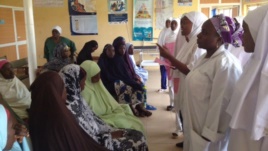 LAGOS/KADUNA, NIGERIA—An association of doctors in Nigeria said the government must do more to improve access and affordability of health care in Africa’s most populous country. At a meeting held last week, the Nigerian Medical Association called for the government to levy a tax on cigarettes, alcohol and cellphone credits. Nigerian Medical Association president Kayode Obembe said Nigeria’s doctors are overstretched. He estimated there is one doctor for every 6,000 patients in Nigeria — a ratio far and above World Health Organization recommendations.
LAGOS/KADUNA, NIGERIA—An association of doctors in Nigeria said the government must do more to improve access and affordability of health care in Africa’s most populous country. At a meeting held last week, the Nigerian Medical Association called for the government to levy a tax on cigarettes, alcohol and cellphone credits. Nigerian Medical Association president Kayode Obembe said Nigeria’s doctors are overstretched. He estimated there is one doctor for every 6,000 patients in Nigeria — a ratio far and above World Health Organization recommendations.
National health insurance, Obembe said that money could pay for a national health insurance plan so poor people can afford preventative medical care. And many of Nigeria’s medical school graduates go overseas, he said. Those that stay in the country tend to live in cities, not in the rural areas where they also are needed. “We still need to put more efforts so that we can get more doctors. And not just getting more doctors, to ensure that they are evenly distributed to take care of every part of the community,” said Obembe.
Senate set to amend laws on counterfeit drugs manufacturing
 An Act to amend the Counterfeit and fake drugs laws on Thursday passed through second reading. In the lead debate, Senator Biodun Olujimi (Ekiti South), took a sober reflection of huge casualties occasioned by application of fake drugs, stressing that if Senate does not rise to the occasion of enacting punitive laws, the menace would linger. She sought the cooperation of lawmakers in amending the Acts for purposes of riding the nation of fake drugs and unwholesome processed foods. “An Act to amend the counterfeit and fake drugs and unwholesome processed foods (Miscellaneous Provisions) Act Laws CAP C34 Laws of the federation and for other matters connected therewith, 2015.
An Act to amend the Counterfeit and fake drugs laws on Thursday passed through second reading. In the lead debate, Senator Biodun Olujimi (Ekiti South), took a sober reflection of huge casualties occasioned by application of fake drugs, stressing that if Senate does not rise to the occasion of enacting punitive laws, the menace would linger. She sought the cooperation of lawmakers in amending the Acts for purposes of riding the nation of fake drugs and unwholesome processed foods. “An Act to amend the counterfeit and fake drugs and unwholesome processed foods (Miscellaneous Provisions) Act Laws CAP C34 Laws of the federation and for other matters connected therewith, 2015.
Senator Barau Jibrin (Kano North) on his part, adduced reasons fake drugs persist despite efforts by NAFDAC at ridding the menace without success to lack of punitive sanctions. In his words: “Perpetrators of counterfeit drugs feel that there is no punitive laws and also they could easily manovoure their ways each time they were caught and go free, but it is time we introduce strict punishment,” he said. Corroborating, Senator Shehu Sani’s position in his applause for late former Director General of NAFDA, Dora Akunyili, he regretted that her effort has been whittled down, noting that the Senate would get to the root of those involved in the

